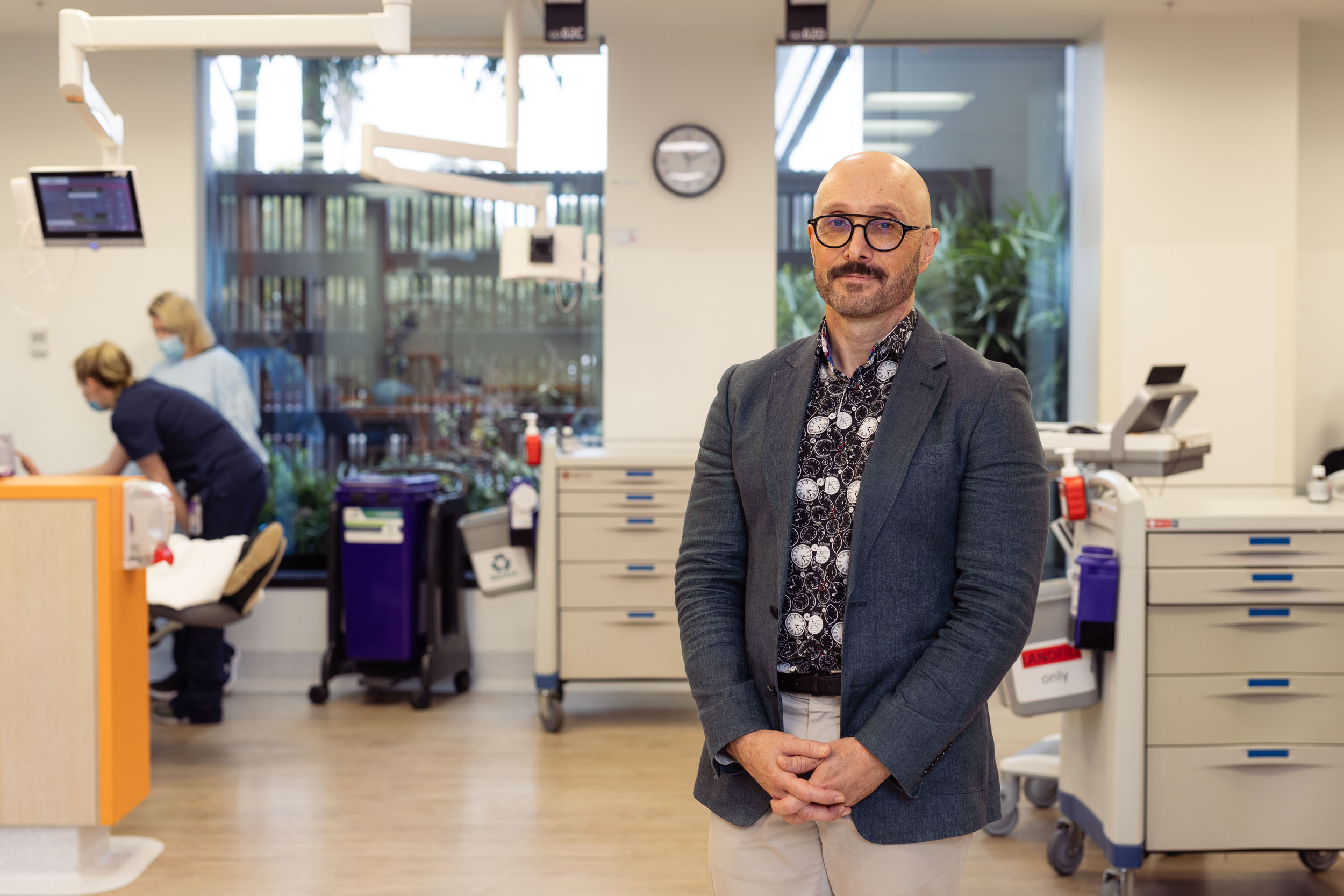“When you provide clinical trials regionally, you make them more accessible and more equitable, and that’s really important because everyone has a right to have access to them” – Dr Rob Blum, Director of Cancer Services, Bendigo Health.
Clinical trials lead to cancer breakthroughs by improving treatment options and survival for cancer patients and are an important part of optimal care during cancer treatment. However, not everyone has the same opportunity to take part.
When potentially lifesaving treatment options are primarily offered at metropolitan centres, we risk poorer patient outcomes for people living in regional and rural areas who are forced to travel long distances for treatment.
“We know, the percentage of participation in clinical trials of regional and rural patients is lower than their metropolitan counterparts,” said Dr Blum. “For a number of people, when you talk to them about the logistics and they have to travel to Melbourne, they just say ‘I can’t do it, it’s too onerous, it’s too expensive’. When you make it accessible, you increase participation.”

In 2017, The Regional Trial Network was established to do just that. Partially funded by Cancer Council Victoria, it brought together five regional clinical trial sites at Albury Wodonga, Shepparton, Ballarat, Bendigo, and Warrnambool.
Between 2016 and 2021, the number of regional participants increased by 21 per cent, proving there is strong interest in the community in accessing clinical trials. But with just 24 per cent of regionally based participants enrolled in a trial at a regional trial unit, there is significant scope to improve patient experiences with greater resourcing and support for regional areas.
Contributing to this initiative, Cancer Council’s Victorian Cancer Trials Link was redeveloped in 2023 with support from the Victorian Government. The online portal is now providing improved access and awareness of available clinical trials across the state (including regional areas) for both patients and clinicians.
So, when clinical trial participation comes down to a matter of logistics more than patient willingness, there are different barriers to overcome in a regional setting.
“When you run clinical trials, you have to have a level of expertise, you have to have the infrastructure, and you have to have the people and the skillsets. And so, as departments get smaller given the infrastructure, it becomes increasingly more challenging to successfully run clinical trials,” said Dr Blum.
Regional clinicians overcome many of these challenges through collaboration, sharing knowledge, becoming adept at multi-skilling, and increasing teletrials. As more regional hospitals are supported to conduct trials, the network gets stronger.
With funding from state and federal programs to increase clinical trial participation in regional areas, Northeast Health Wangaratta has been conducting clinical trials since 2019 and has participated in 17 trials across the organisation.
Clinical trial coordinator, Nicole Humphreys says regional trials provide opportunities for cancer patients as well as clinicians, and by extension the whole community can benefit.
“[Among patients] there is a strong appetite for trial participation, particularly when the burdens of travel are reduced. Patients are often surprised that such opportunities are available regionally and are encouraged by the fact that we are seeking to provide best-evidence care,” said Ms Humphreys.
“Having clinical trials in regional areas also attracts clinicians to the regional workforce. Clinicians no longer have to work in metropolitan areas to be involved in research and clinical trials.”
As a result of government funding programs, Northeast Health Wangaratta has been able to expand its workforce in clinical trials and research as well as the number of therapeutic areas involved in clinical trials.
However, with resources still being developed, they remain limited to the number of trials they can offer. This can be due to the availability of trial investigators, the complexity of trials, or the ability to provide interventions at a regional site.
“This makes it critical to select trials that will have the most impact on our community,” said Ms Humphreys.
Teletrials are one way to address current limitations, where regional trial units can act as satellite sites to metropolitan-based trials. Cancer Council Victoria is working closely with trial sites to increase teletrial listings on the Victorian Cancer Trials Link where users can search for trials delivered by this model.
.jpg)
The collaboration and expansion of regional clinical trials signals more promising developments to come as the need to improve equity and access for regional cancer patients is given greater focus.
“We’re currently looking at the potential for opening up some clinical trials in some of the sub-regions as well,” says Dr Blum. “That is aspirational, but it is starting to look like it’s going to be a reality.
“One day we might be able to have a situation where we can have linkages to a whole stream of clinical trials, but the person actually doesn’t have to travel very far at all.”
For now, ensuring those who want to participate in clinical trials have equitable access and are aware of what is available to them depends on maintaining this momentum.
As Dr Blum says, “In order for us to increase our capacity it’s about ensuring that we as clinicians are talking to our patients about clinical trials. And in addition to that, strategically, we are talking to other people in the industry so they know that we’re doing this work so we can continue growing.”
To learn more about cancer clinical trials and to find trials available in your region, visit
trials.cancervic.org.au
